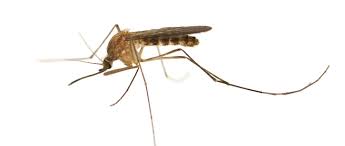Area Mosquitos Carry West Nile Virus

Framingham, MA -- The Massachusetts Department of Public Health (DPH) announced it has identified 14 West Nile Virus (WNV) positive mosquito samples out of 2,705 collected in Barnstable, Middlesex, and Suffolk Counties. Of the 2,705, there were zero Eastern Equine Encephalitis (EEE) samples identified. There also were zero human cases of WNV and EEE in Barnstable, Middlesex, and Suffolk Counties.
The populations of mosquito vectors that transmits WNV and EEE are above average and increasing due to intense regional precipitation events and continued warm weather.
By taking a few, common-sense precautions, people can help to protect themselves and their loved ones:
Avoid Mosquito Bites
Be Aware of Peak Mosquito Activity - The hours from dusk to dawn are peak biting times for many mosquitoes. Consider rescheduling outdoor activities that occur during the evening or early morning. If you are outdoors at any time and notice mosquitoes around you, take steps to avoid being bitten by moving indoors, covering up, and/or wearing insect repellant.
Clothing Can Help reduce mosquito bites. Although it may be challenging to do when it’s hot, wearing long-sleeves, long pants, and socks when outdoors will help keep mosquitoes away from your skin.
Apply Insect Repellent when you go outdoors. Use a repellent with DEET (N, N-diethyl-m-toluamide), permethrin, picaridin (KBR 3023), IR3535, or oil of lemon eucalyptus [p-methane 3, 8-diol (PMD)] according to the instructions on the product label. DEET products should not be used on infants under two months of age and should be used in concentrations of 30% or less on older children. Oil of lemon eucalyptus should not be used on children under three years of age. Permethrin products are intended for use on items such as clothing, shoes, bed nets, and camping gear and should not be applied to the skin.
Mosquito-Proof Your Home
Drain Standing Water - Many mosquitoes lay their eggs in standing water. Limit the number of places around your home for mosquitoes to breed by either draining or getting rid of items that hold water. Check rain gutters and drains. Empty any unused flowerpots and wading pools, and change the water in birdbaths frequently.
Install or Repair Screens - Some mosquitoes like to come indoors. Keep them outside by having tightly-fitting screens on your windows and doors.
Protect Your Animals
Animal owners should reduce potential mosquito breeding sites on their property by eliminating standing water from containers such as buckets, tires, and wading pools – especially after heavy rains. Water troughs provide excellent mosquito breeding habitats and should be flushed out at least once a week during summer months to reduce mosquitoes near paddock areas. Horse owners should keep horses in indoor stalls at night to reduce their risk of exposure to mosquitoes. Owners should also speak with their veterinarians about mosquito repellents approved for use in animals and vaccinations to prevent EEE and WNV.
Framingham belongs to the Eastern Middlesex Mosquito Control Project (EMMCP). EMMCP has completed applying larvicide to all catch basins in Framingham and continues to do the same in wetlands. Framingham Department of Public Health continues to work closely with the MDPH and EMMCP to monitor and respond to mosquito-related issues.
Information about EEE, WNV, and reports of current and historical mosquito-transmitted virus activity in Massachusetts can be found on the MDPH website at www.mass.gov/dph/mosquito.
###
Source: MA Dept. of Public Health
